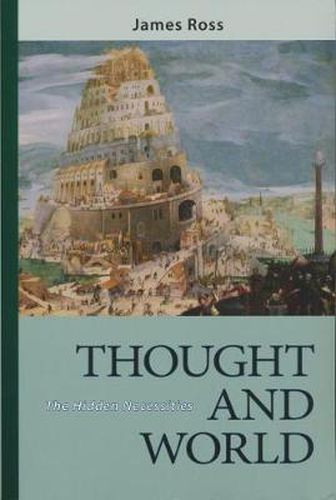Readings Newsletter
Become a Readings Member to make your shopping experience even easier.
Sign in or sign up for free!
You’re not far away from qualifying for FREE standard shipping within Australia
You’ve qualified for FREE standard shipping within Australia
The cart is loading…






James F. Ross is a creative and independent thinker in contemporary metaphysics and philosophy of mind. In this concise metaphysical essay, he argues clearly and analytically that meaning, truth, impossibility, natural necessity, and our intelligent perception of nature fit together into a distinctly realist account of thought and world. Ross articulates a moderate realism about repeatable natural structures and our abstractive ability to discern them that poses a challenge to many of the common assumptions and claims of contemporary analytic philosophy. He develops a broadly Aristotelian metaphysics that recognizes the hidden necessities of things, which are disclosed through the sciences, which ground his account of real impossibility as a kind of vacuity, and which require the immateriality of the human ability to understand. Those ideas are supported by a novel account of false judgment. Ross aims to offer an analytically and historically respectable alternative to the prevailing positions of many British-American philosophers.
$9.00 standard shipping within Australia
FREE standard shipping within Australia for orders over $100.00
Express & International shipping calculated at checkout
James F. Ross is a creative and independent thinker in contemporary metaphysics and philosophy of mind. In this concise metaphysical essay, he argues clearly and analytically that meaning, truth, impossibility, natural necessity, and our intelligent perception of nature fit together into a distinctly realist account of thought and world. Ross articulates a moderate realism about repeatable natural structures and our abstractive ability to discern them that poses a challenge to many of the common assumptions and claims of contemporary analytic philosophy. He develops a broadly Aristotelian metaphysics that recognizes the hidden necessities of things, which are disclosed through the sciences, which ground his account of real impossibility as a kind of vacuity, and which require the immateriality of the human ability to understand. Those ideas are supported by a novel account of false judgment. Ross aims to offer an analytically and historically respectable alternative to the prevailing positions of many British-American philosophers.